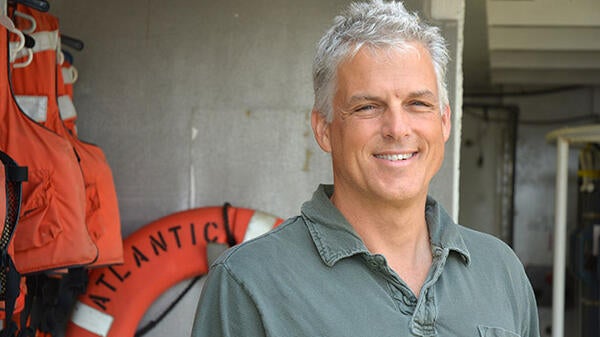In the clear waters off the coast of Bermuda, Dr. Craig Carlson has spent decades investigating the invisible forces shaping the global carbon cycle: millions of bacteria in every drop of seawater, consuming carbon compounds dissolved into the ocean like sugar into tea. Dr. Carlson’s research linking how microbes interact with carbon in the ocean is now considered vital to understanding the global carbon cycle, and he is being honored with a major award from the leading professional organization for aquatic scientists.
REU Student Presents at Aquatic Sciences Meeting
March 26, 2015
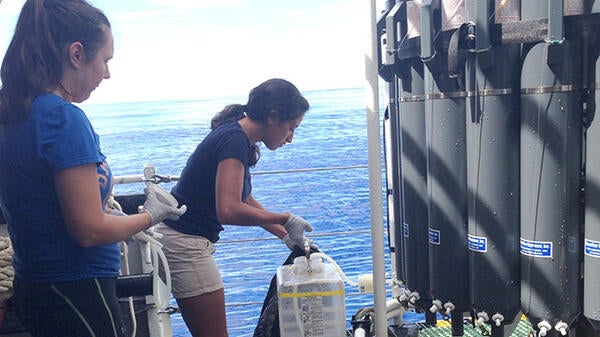
When Esra Mescioglu learned she was accepted to the Fall 2013 Research Experiences for Undergraduates (REU) program at BIOS, she didn’t know what to expect. Frankly, she was a little nervous to leave behind her friends and routine at the University of Massachusetts in Boston. Now, more than a year after her internship in Bermuda, she is thankful her nerves didn’t deter her and is flying from one scientific adventure to the next. Last week Mescioglu is presenting the results of her research project at the Aquatic Sciences meeting of the American Society for Limnology and Oceanography (ASLO) in Granada, Spain, and is quick to share how valuable her experience in the BIOS REU program was.
BATS Funding Renewed
June 28, 2018
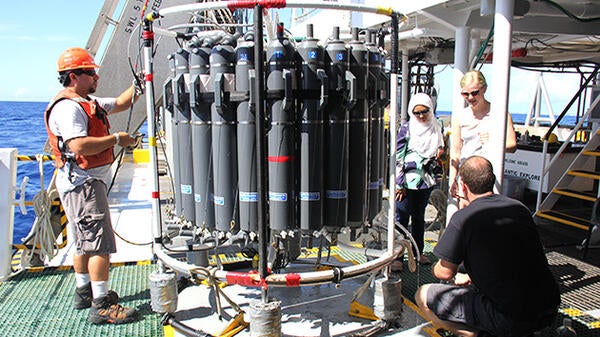
Funds granted in May by the National Science Foundation will allow BIOS scientists to continue their research through 2023 at the Bermuda Atlantic Time-series Study (BATS) site, a project established in 1988 by BIOS and collaborators to examine the “time-varying” components of the ocean carbon cycle, ocean physics, and biology.
An Ocean Sciences Icon Turns 30
November 28, 2018
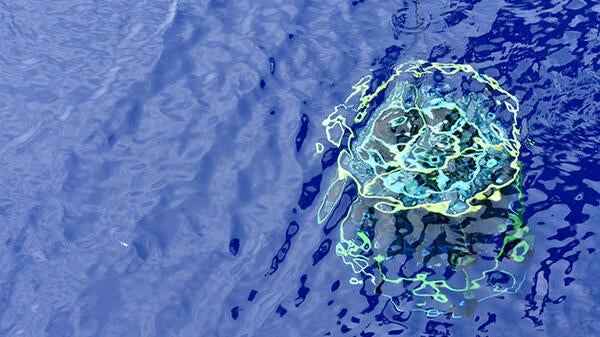
Three decades ago, scientists came to Bermuda to address “big picture” questions about the ocean by collecting data on fundamental physical, chemical, and biological parameters throughout the water column in the Sargasso Sea. They knew that critical questions about how the ocean functions, such as how it responds to global climate change, could only be answered by the collection and subsequent analysis of data gathered continuously over a long period, also known as a time-series study.
BIOS Celebrates 25 Years of Oceanographic Time-series Science
May 09, 2014
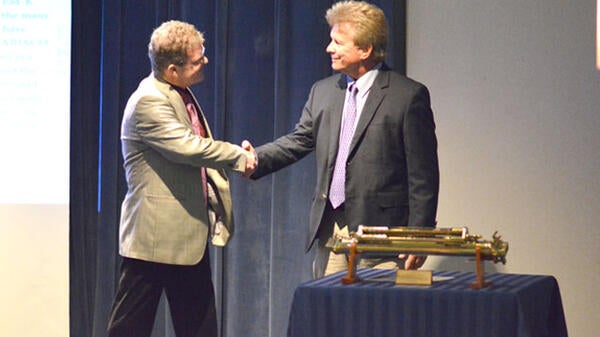
On April 24, 2014, BIOS faculty, staff, and supporters gathered in the Tradewinds Auditorium at BUEI to highlight a quarter century of science carried out through the Bermuda Atlantic Time-series Study (BATS), and to celebrate the numerous individuals who have contributed to the growth and longevity of the oceanographic time-series.
Deepgliders: The Next Frontier in Ocean Exploration
March 30, 2014
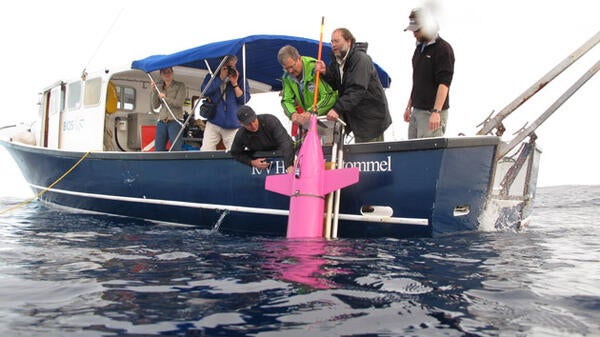
In 1872 the H.M.S. Challenger embarked upon a four-year scientific journey to survey and explore the world’s ocean, including the deep sea in the great ocean basins. During this time, her crew and scientific staff collected 492 depth soundings and 263 observations of water temperature—an impressive feat considering their equipment consisted of a plumb line marked in 25 fathom intervals and several thermometers (including a reversing thermometer, which could measure temperature at specific depths). The resulting 50-volume report laid the foundation for the modern fields of oceanography.
BIOS Scientists Gather for Ocean Sciences Meeting
March 30, 2020
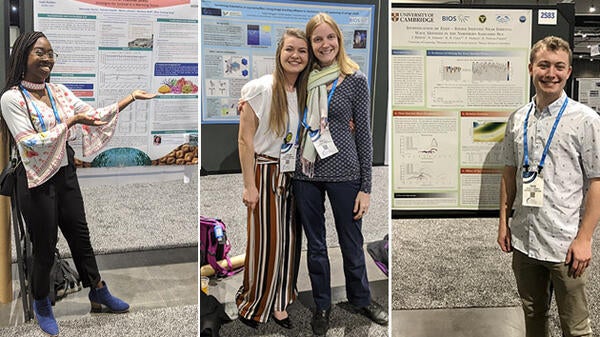
Researchers and students representing BIOS gathered in San Diego, California, in mid-February to participate in the biennial Ocean Sciences meeting. The flagship conference, held jointly by the Oceanography Society, the American Society of Limnology and Oceanography, and the American Geophysical Union, attracted nearly 5,000 scientists, managers, and educators from around the globe.
The Ocean Responds to a Warming Planet
April 28, 2020
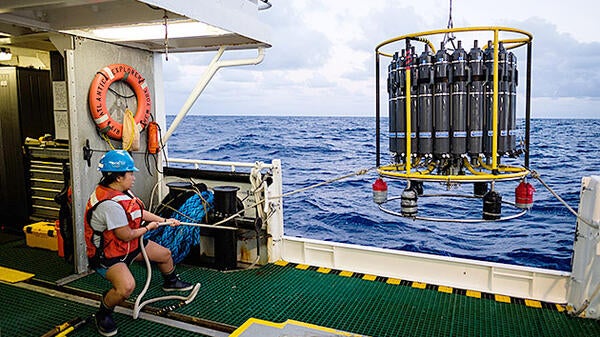
We are familiar with how climate change is impacting the ocean’s biology, from bleaching events that cause coral die-offs to algae blooms that choke coastal marine ecosystems, but it is becoming clear that a warming planet is also impacting the physics of ocean circulation.
Marine Technicians: Supporting the Science at Sea
August 29, 2019
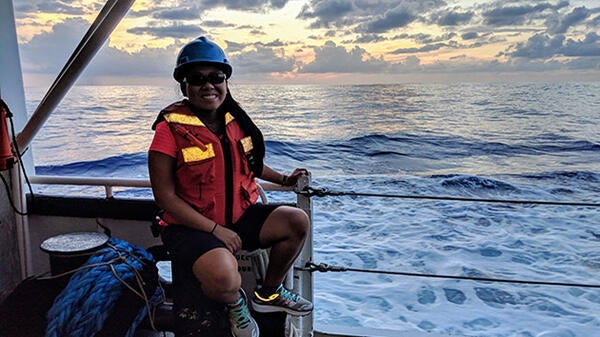
Behind every successful ocean science research cruise—whether it’s for a day, a week, or multiple months—is a cadre of professionals ensuring that everything runs smoothly: the marine technicians. These individuals possess a unique set of skills that combines technical and engineering expertise, a broad understanding of ocean science, communication, and a willingness to often work long hours in the elements on the back deck of a ship.
Getting a Leg up in the Field
September 27, 2019
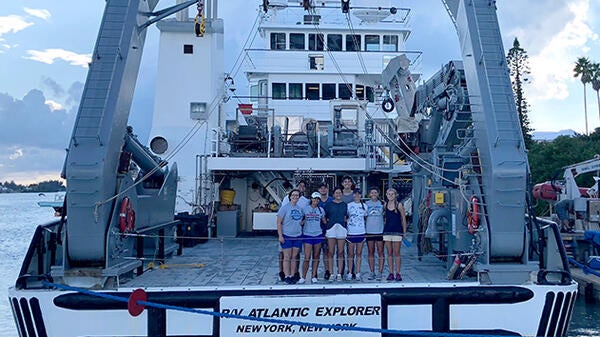
For many jobs in the science, technology, engineering, and mathematics (STEM) fields, hands-on experience in research is a valuable asset, if not a requirement. This presents a unique challenge to undergraduate students who often lack the time, networking resources, and track record to obtain even entry-level positions that would provide such experience. Since 1987 the National Science Foundation (NSF) has been supporting thousands of undergraduate researchers each year through its Research Experiences for Undergraduates (REU) program.
